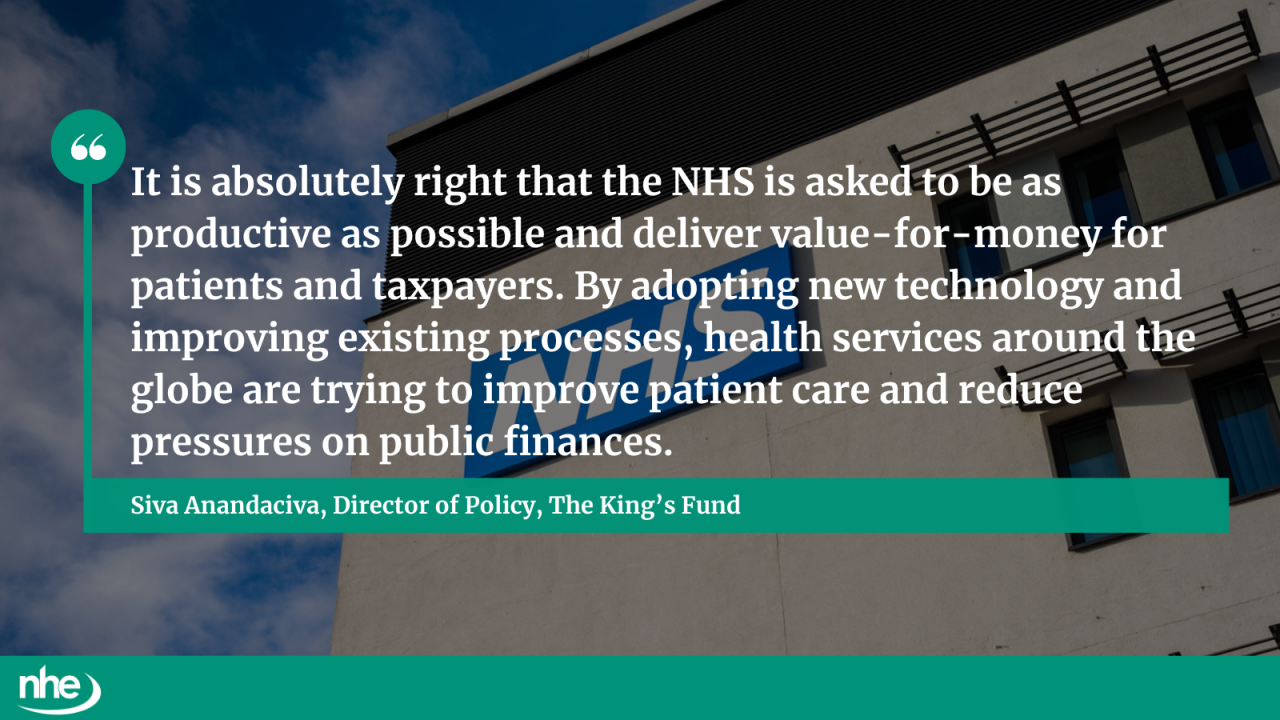A new study by The King’s Fund has revealed the difficult decisions NHS leaders in England are making to balance budgets while trying to protect patient care.
The research highlights how financial constraints are forcing local NHS organisations to cut services, freeze recruitment, and scale back public health programmes.
Despite a £22.6 billion funding boost announced in the 2024 Autumn Budget, NHS systems are still facing a projected £6.6 billion deficit for 2025/26. The study warns that without further financial certainty, the NHS will struggle to meet rising demand and deliver essential reforms.
The report details how NHS leaders are:
- Reducing patient transport services
- Freezing recruitment and limiting agency staff
- Cutting back on public health services such as health visiting and school nursing
These measures, while aimed at preserving core services, risk undermining long-term health outcomes and widening health inequalities.
Siva Anandaciva, Director of Policy at The King’s Fund, commented:
“It is absolutely right that the NHS is asked to be as productive as possible and deliver value-for-money for patients and taxpayers. By adopting new technology and improving existing processes, health services around the globe are trying to improve patient care and reduce pressures on public finances. But it is also right that the health service is set realistic goals.
“Our research shows how challenging it is to keep running high-quality services when budgets can’t keep pace with demand. It underlines just how difficult it will be to deliver much-needed reforms while also expecting rapid improvements to current services.
“NHS budgets have risen in real terms while some other public services have seen funding cuts, but financial pressures persist and they are having an impact on the quality of care. Patients are experiencing long waits for care, are treated in dilapidated buildings, and report worsening experience. The impact is shown in the findings of the latest British Social Attitudes survey which found that public satisfaction with the NHS is at its lowest level since the survey began over 40 years ago.
“The government’s ambition to deliver major reform for the NHS has never been more needed. To achieve that goal, ministers have previously said they will need to make tough trade-offs. Now is the time for realism about what can be achieved in the current financial envelope, and clarity about how the NHS should prioritise funding to deliver reforms versus maintaining the services people are currently using every day.”

The NHS is grappling with a complex mix of financial pressures, including:
- Rising demand from a sicker population
- The growing £13.8 billion maintenance backlog
- Costs related to industrial action and cybersecurity
- Persistent inflationary pressures
The King’s Fund warns that some services are becoming financially unsustainable, and calls for greater realism from both government and the public about what the NHS can deliver in the short term.
To help NHS leaders plan more effectively, the report recommends moving away from annual budgeting and instead adopting multi-year funding settlements. This would provide greater stability and reduce the risk of short-term financial decisions negatively impacting patient care.
The findings underscore the urgent need for a long-term, sustainable funding model that supports both day-to-day operations and the transformation needed to future-proof the NHS.
In response to the report, the NHS Confederation’s Chief Executive Matthew Taylor commented:
“The findings of this report demonstrate the scale of the financial pressures facing the NHS, due to increased demand and an ageing population. Our members understand the precarious state of the public finances and are doing all they can to boost productivity. However, they are faced with the most challenging financial outlook in years.
“To help them operate within these constrained budgets while improving productivity, the most important support they need is extra capital funding to unlock productivity improvements and continue to deliver patient care. That is why we hope that next month's Spending Review will increase NHS capital investment and that the forthcoming National Infrastructure Strategy will open up much needed new routes for mutual investment from the private sector.”
Image credit : iStock



















